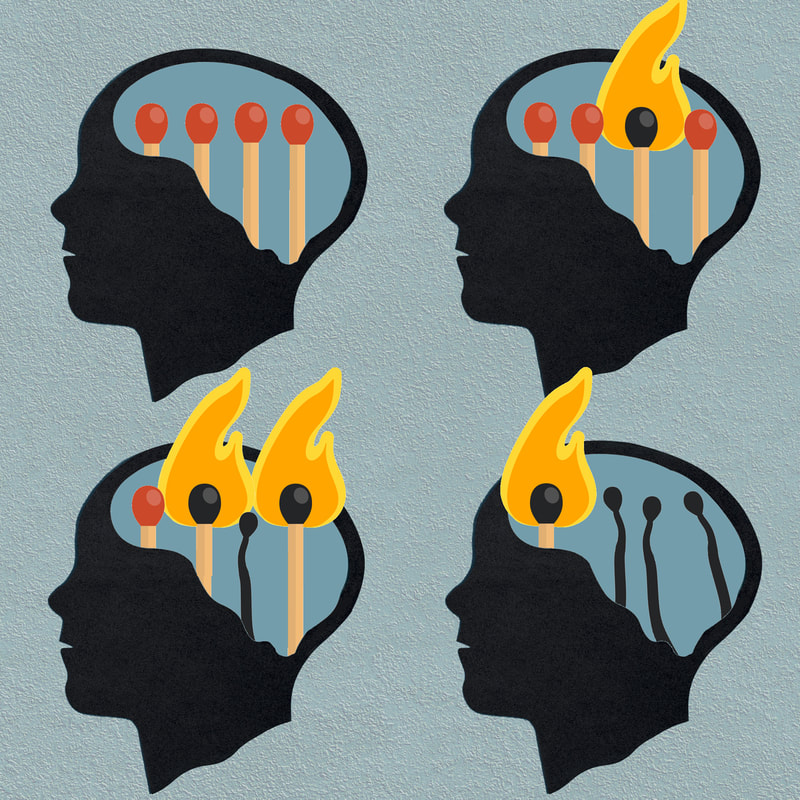Assays were done on samples obtained from 60 PANDAS patients, 8 children with Sydenham chorea (SC), and 2 “control” groups which were children with other psychiatric/neurologic disorders (25 with obsessive-compulsive disorder, 18 with attention deficit hyperactivity disorder (ADHD) and 18 with Tourette disorder), and 28 healthy controls.
The results showed that the panel of four anti-neuronal antibodies and CaMKII activation assays successfully identify acute illness in PANDAS, providing opportunities for rapid and accurate diagnosis and treatment. Scientists noted that autoantibody titers and CaMKII activity in the SC and PANDAS groups were significantly higher than that of the psychiatric contrast groups or healthy controls. (Note: see below for more details about the relevance of CaMKII in brain processes.) Why is this research important in the treatment of AE/PANS and PANDAS? Several key points arising from this study are of special significance for patients and families who are seeking diagnosis and appropriate care for treatment of these disorders: 1. When our patients with autoimmune encephalitis (AE)/PANS and PANDAS see an improvement in their condition, neuronal antibodies decline or resolve so we can use the Cunningham Panel to gauge treatment response because we then have more information about the levels of these antibodies! 2. The Cunningham panel is a much more sensitive marker for PANS and PANDAS than ASO and other strep markers. Most acute PANDAS blood serum (74.3%) were positive for dopamine receptor autoantibodies (D1R and/or D2R). 3. Of the normal subjects examined in this study, 32% had positive results for at least one of the autoantibody ELISA titers, but none had elevated CaMKII signaling activity suggesting that the autoantibodies in healthy subjects lack the ability to trigger neuronal cells. CaMKII is involved in neuroplasticity and memory as well as the up-regulation of many neurotransmitters in the brain. It has been found that autoantibodies can be elevated for months or even years preceding the development of some reported autoimmune syndromes; positivity in a healthy control sample is related to cross-reactivity of microbial and host antigens. I liken this to having a positive anti-nuclear antibody (ANA); while not all people who do test positive have or well go on to develop systemic lupus erythematosus or rheumatoid arthritis, for example, it is definitely something that should be followed by a medical practitioner. 4. Most acute PANDAS blood serum (74.3%) were positive for dopamine receptor autoantibodies (D1R and/or D2R). 5. When autoantibodies attack the brain, a multitude of neurological and neuropsychiatric symptoms can develop. 6. A negative Cunningham panel does not rule out AE/PANS and PANDAS. BUT it’s important to remember that sometimes patients with immune deficiencies may have false negatives and it’s possible that cerebral spinal fluid autoantibodies are not seen in the serum. So, the takeaway here is to examine all the testing, observational data, lifestyle factors etc. when we look at a patient’s history and facilitate a full workup – which, of course, is also the benefit as well as the core mission and protocols defined by integrative medicine! What are the disease mechanisms involved in AE/PANS and PANDAS: We know there is more than one mechanism responsible for disease initiation and one reason that we continue to seek to first identify the root cause of any disorder before simply treating the symptoms. Some of these mechanisms relevant to AE/PANS and PANDAS include: 1. Th17 lymphocyte extravasation from the nose into the brain causing a breakdown of the blood-brain barrier (BBB). This may be triggered by multiple strep infections and I believe that other pathogens, especially mold, are also involved. Lymphocyte or leukocyte extravasation is simply the movement of leukocytes out of the circulatory system and towards the site of tissue damage or infection. But when this response goes awry is also when it can wreak havoc with our immune system. 2. Molecular mimicry post-infection sets up an altered immune response. 3. An altered immune response then promotes the production of autoantibodies and an intense inflammatory immune response. Subsequently this can all cause BBB permeability due to cytokine signaling, and trafficking of autoantibody-producing B cells and T cells to the CNS, promoting microglial damage. Microglia are the brain’s resident immune cells and they are important scavengers of toxins and debris. When the microglia become damaged or chronically stimulated it can lead to what we call “brain on fire” or intense neuroinflammation that essentially goes unchecked like a blazing wildfire. The results can very well be significant neurodegeneration and permanent neuronal loss. It is imperative to put the immune system back on track in order to help patients with AE/PANS and PANDAS. First, we address any underlying infections which stimulate our critical B cells to create the necessary autoantibodies. Immunomodulating treatment with IVIg can sometimes be employed to help “reset” our system. But a care plan going forward should include a personalized, complex protocol focused on diet, gut healing, detoxification strategies, stress modification, neurofeedback and more for the body and brain to ultimately heal. Important research indeed and, once again, a nod to science that continues to take autoimmune encephalitis, PANS and PANDAS out of the shadows of mental illness! Onward, with hope and healing, Dr. Suzanne Gazda References and additional reading: *Chain Jennifer L., Alvarez Kathy, Mascaro-Blanco Adita, Reim Sean, Bentley Rebecca, Hommer Rebecca, Grant Paul, Leckman James F., Kawikova Ivana, Williams Kyle, Stoner Julie A., Swedo Susan E., Cunningham Madeleine W. “Autoantibody Biomarkers for Basal Ganglia Encephalitis in Sydenham Chorea and Pediatric Autoimmune Neuropsychiatric Disorder Associated With Streptococcal Infections.” Frontiers in Psychiatry. Vol. 11 (2020); p 564. https://doi.org/10.3389/fpsyt.2020.00564 https://www.frontiersin.org/articles/10.3389/fpsyt.2020.00564/full For more information about CaMKII see: https://www.frontiersin.org/articles/10.3389/fnmol.2018.00445/full For more information about the Cunningham Panel and Moleculera Labs see: https://www.moleculeralabs.com/cunningham-panel-laboratory-testing/
0 Comments
Your comment will be posted after it is approved.
Leave a Reply. |
AuthorDr. Suzanne Gazda, Integrative Neurology Archives
February 2024
Categories |

 RSS Feed
RSS Feed